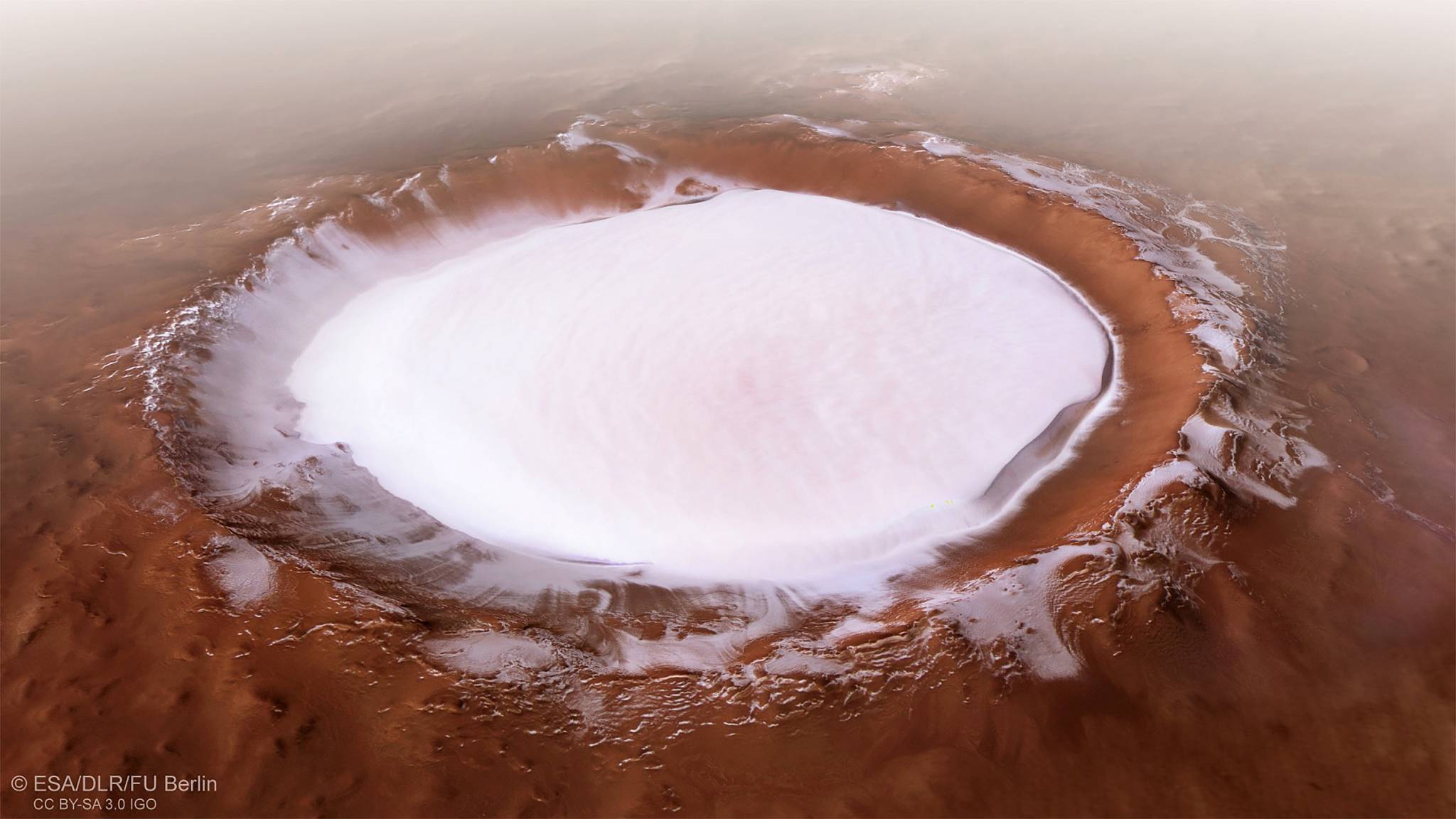
Korolev Crater, in the northern lowlands of Mars, is filled not by snow but ice, with its center hosting a mound of water ice some 1.8 kilometers thick all year round, December 20, 2018. /ESA
Researchers said Wednesday they had observed water vapor escaping high up in the thin atmosphere of Mars, offering tantalizing new clues as to whether the Red Planet could have once hosted life.
The traces of ancient valleys and river channels suggest liquid water once flowed across the planet's surface. Today, the water is mostly locked up in the planet's ice caps or buried underground.
But some of it is vaporizing, in the form of hydrogen leaking from the atmosphere, according to the new research co-authored in the journal Science Advances by two scientists at Britain's Open University.
They detected the vapor by analyzing light passing through the Martian atmosphere using an instrument called the Nadir and Occultation for Mars Discovery.
The device is traveling aboard the ExoMars Trace Gas Orbiter, a joint mission between the European Space Agency and Russia's Roscosmos.
"This fantastic instrument is giving us a never-before-seen view of water isotopes in the atmosphere of Mars as a function of both time and location," Manish Patel, senior lecturer in planetary sciences at the Open University, said.
"Measuring water isotopes is a crucial element of understanding how Mars as a planet has lost its water over time, and therefore how the habitability of the planet has changed throughout its history," he said.
It has been a busy week for Martian research.
On Wednesday, China's Tianwen-1 probe entered the planet's orbit after launching from southern China last July, becoming the country's first artificial satellite of Mars and achieved the first goal of its three-step mission – orbiting, landing and roving.
The day before, the United Arab Emirates' "Hope" probe also successfully entered Mars' orbit, making history as the Arab world's first interplanetary mission.
No comments:
Post a Comment
Note: Only a member of this blog may post a comment.